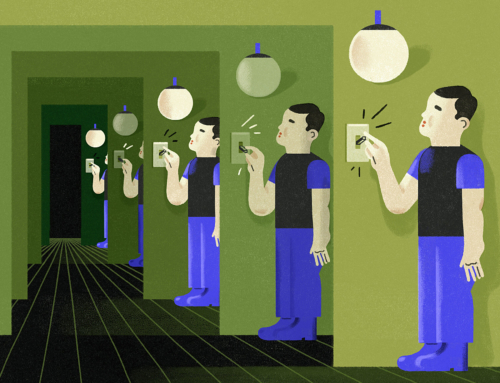Tuesday 7th of March, 2023.
Written by Clinical Psychologist, Ebony Collins.
BIPOLAR
 Bipolar gets thrown around when somebody’s mood appears to shift up and down quite quickly; the suggestion being that the persons noticeable shifts in mood are so problematic that they must be unwell. The reality with bipolar is quite different. In most instances someone with bipolar will cycle through either a depressive or manic state over the course of several days or weeks, or even months. The change in mood generally occurs over a period in which symptoms gradually increase and eventually reduce again.
Bipolar gets thrown around when somebody’s mood appears to shift up and down quite quickly; the suggestion being that the persons noticeable shifts in mood are so problematic that they must be unwell. The reality with bipolar is quite different. In most instances someone with bipolar will cycle through either a depressive or manic state over the course of several days or weeks, or even months. The change in mood generally occurs over a period in which symptoms gradually increase and eventually reduce again.
Manic episodes present differently in different people. Some people are filled with ideas and extreme energy, others have delusional beliefs or become grandiose, and then there is all variety of elevated behaviours such as spending, reckless behaviours, and impulsivity. The consequences for someone’s actions following a manic episode can be quite significant. Excessive spending, promiscuous behaviour, and all variety of behaviour that is out of character for the individual can have all manner of unintended outcomes. Having acted out of character can leave the individual feeling embarrassed by their actions or overwhelmed by what they need to do to address their actions.
Rapid cycling bipolar refers to someone who moves from a manic episode straight into a depressive episode without any period of stabilisation in between. The depressive and manic episode do not occur with in the space of a day or several hours as the incorrect use of this phrase suggests. They occur over a much longer period. Depression is not uncommon after a manic episode due the individual experiencing distress in relation to their behaviour during their manic episode.
While the low periods are very low and miserable for some people, their highs, or at least the initial phase of their high can be enjoyable. There can be an increase in energy, a flooding of ideas, much greater confidence, and a lack of inhibition, and a general excitement for life. This can make it very difficult for someone having these experiences to want to stop them and can lead to avoiding seeking help.
Living with Bipolar
 Medication can be extremely beneficial in treating bipolar. Psychological strategies can be a very helpful addition to assist in managing symptoms and navigating episodes.
Medication can be extremely beneficial in treating bipolar. Psychological strategies can be a very helpful addition to assist in managing symptoms and navigating episodes.
Learning to recognise the symptoms early can be one of the most helpful ways to manage bipolar. Having an awareness of the different signs and symptoms can allow someone to take steps much sooner in order to manage an episode. Implementing healthy lifestyle changes and learning ways manage specific symptoms can help to minimise the severity of symptoms.
One strategy to help with this is the use of an early warning signs plan. This plan generally identifies every day stresses and methods for maintaining someone’s mental health. It then lists early signs of an episode (depressive and manic/hypomanic) and strategies for managing this. A third category lists the symptoms of a relapse and the steps to be taken when this occurs. It can be helpful to include a section for actions that can be taken bye other people to assist or intervene at these different stages.
Sharing a plan with key people in their life, on how to recognise and manage symptoms, can also be very beneficial as others may recognise symptoms much sooner. Each person is different and their symptoms as well as strategies to manage them will be specific to them, completing a plan, such as this can be helpful to do with the assistance of a health professional and input from family and friends.
World Bipolar Day – March 30th
Resources:
Blackdog Institute
https://www.blackdoginstitute.org.au/resources-support/bipolar-disorder/
Bipolar Life
https://www.bipolarlife.org.au/
Bipolar Australia






